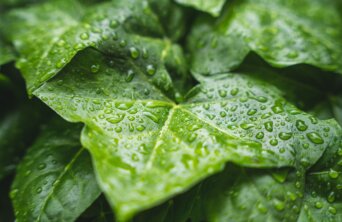- About
- Topics
- Picks
- Audio
- Story
- In-Depth
- Opinion
- News
- Donate
- Signup for our newsletterOur Editors' Best Picks.Send
Read, Debate: Engage.
| topic: | Innovation |
|---|---|
| located: | Indonesia |
| editor: | Syahdinar |
Indonesia is grappling with a looming water crisis exacerbated by climate change and mismanaged resources. As Asia's epicentre for weather-related disasters in 2023, the country faces a stark reality: escalating floods, severe storms, and diminishing groundwater reserves. Reports from Bappenas paint a dire picture, predicting acute water shortages by 2045 in regions like South Sumatra, West Nusa Tenggara, and South Sulawesi, with Java and Bali also teetering on the brink of water scarcity.
In response to these challenges, rainwater harvesting emerges as a practical and sustainable solution. Often overlooked, rainwater is clean, and local communities can effectively manage its collection through simple, accessible methods. Sri Wahyuningsih's pioneering efforts at the Banyu Bening Rainwater School exemplify such an approach.
Established in 2015 in Dusun Tempursari, Yogyakarta, the school promotes rainwater management to address daily water needs and restore the environment. Wahyuningsih's initiative provides an alternative to depleting groundwater and champions environmental sustainability.
Wahyuningsih told FairPlanet that manual techniques for rainwater management are remarkably straightforward and accessible.
Communities can collect and purify rainwater using buckets, closed containers, funnels, and filtering cloths. The process begins by allowing the initial rain to cleanse rooftops of contaminants accumulated during dry spells. Subsequent rainfall can be collected afterwards to minimise pollutants from the atmosphere. The collected water undergoes settling and filtration before storage in shaded, closed containers to prevent algae growth and microplastic contamination from sun-exposed plastics.
Advanced technologies offer sophisticated filtration solutions, such as the GAMA-RainFilter developed by Professor Dr Ing Ir Agus Maryono from the Indonesian university UGM. The three-stage system uses sand filters in gutters to trap large debris and employs special pipes with automated closures to manage overflow effectively. The result is purified rainwater ready for various household uses.
Challenges persist in promoting the widespread adoption of rainwater harvesting. Public education remains hindered by stigma and insufficient knowledge dissemination. Clear communication and practical demonstrations are crucial to fostering community acceptance and replicating sustainable water practices.
Government involvement is pivotal in scaling up rainwater harvesting initiatives. While efforts like the Drinking Water Supply System (SPAM) aim for universal coverage by 2030, broader public engagement and accessible messaging are essential to drive meaningful change.
Embracing rainwater as a primary resource alleviates clean water shortages, significantly reduces plastic waste and conserves natural resources. This integrated approach ensures community resilience against climate change and prolonged dry seasons and lays the groundwork for a sustainable water future in Indonesia.
Through critical evaluation and robust implementation, rainwater harvesting can emerge as a solution and a transformative force in Indonesia's water management landscape.
Image by Saskia Plötz.

